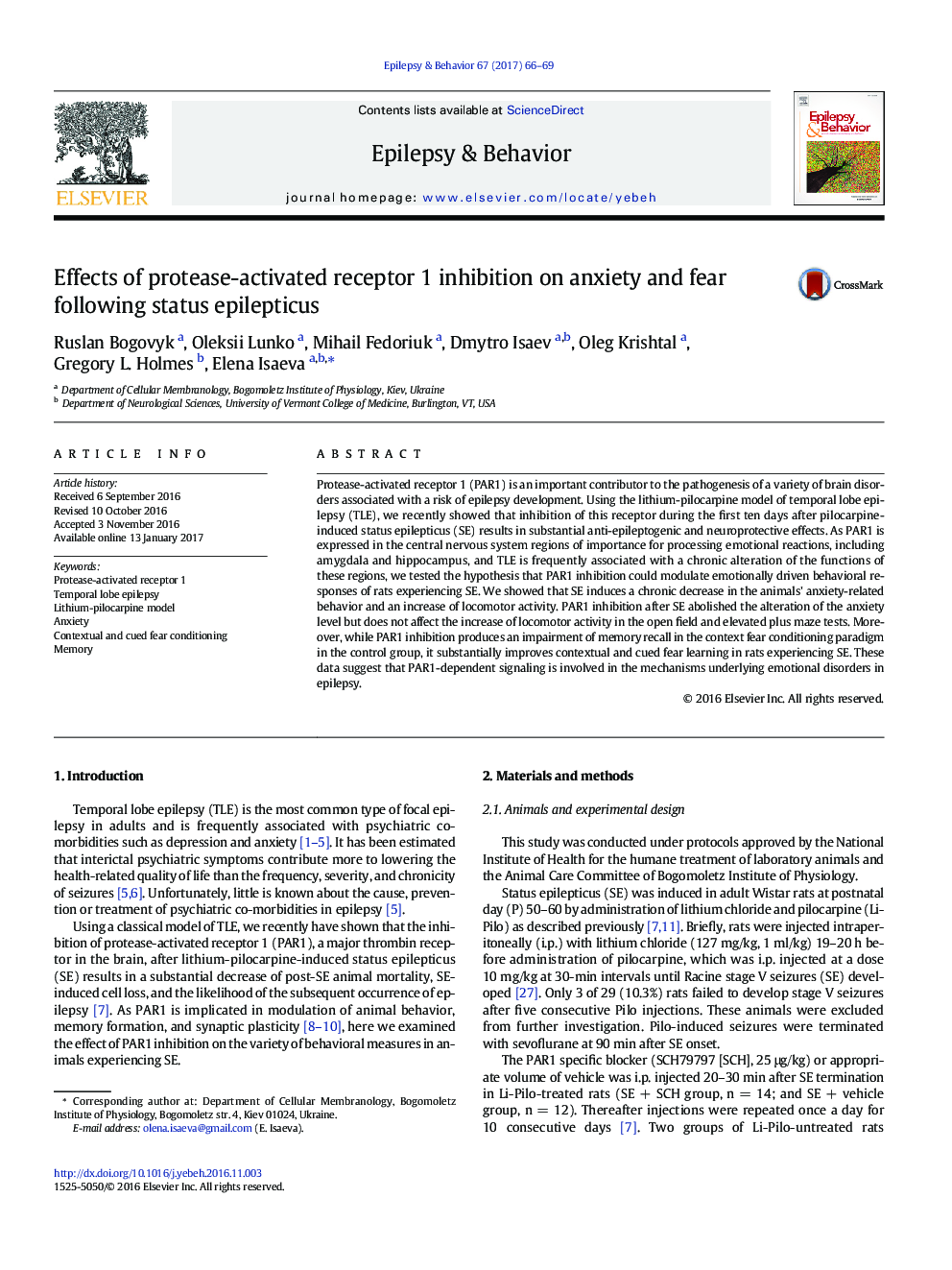| Article ID | Journal | Published Year | Pages | File Type |
|---|---|---|---|---|
| 5628479 | Epilepsy & Behavior | 2017 | 4 Pages |
â¢The mechanism of anxiety-related deficits in patients with epilepsy are unclear.â¢PAR1 is implicated in the regulation of emotionally-motivated learning.â¢PAR1 inhibition restores the level of anxiety-related behavior in epileptic rats.â¢PAR1 inhibition improves contextual and cued fear learning in epileptic rats.â¢PAR1-dependent signaling may be involved in emotional disorders in epilepsy.
Protease-activated receptor 1 (PAR1) is an important contributor to the pathogenesis of a variety of brain disorders associated with a risk of epilepsy development. Using the lithium-pilocarpine model of temporal lobe epilepsy (TLE), we recently showed that inhibition of this receptor during the first ten days after pilocarpine-induced status epilepticus (SE) results in substantial anti-epileptogenic and neuroprotective effects. As PAR1 is expressed in the central nervous system regions of importance for processing emotional reactions, including amygdala and hippocampus, and TLE is frequently associated with a chronic alteration of the functions of these regions, we tested the hypothesis that PAR1 inhibition could modulate emotionally driven behavioral responses of rats experiencing SE. We showed that SE induces a chronic decrease in the animals' anxiety-related behavior and an increase of locomotor activity. PAR1 inhibition after SE abolished the alteration of the anxiety level but does not affect the increase of locomotor activity in the open field and elevated plus maze tests. Moreover, while PAR1 inhibition produces an impairment of memory recall in the context fear conditioning paradigm in the control group, it substantially improves contextual and cued fear learning in rats experiencing SE. These data suggest that PAR1-dependent signaling is involved in the mechanisms underlying emotional disorders in epilepsy.
